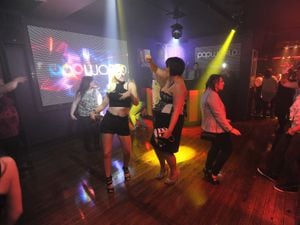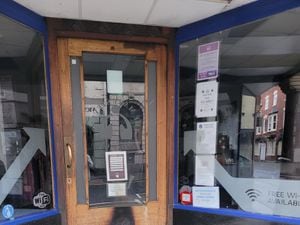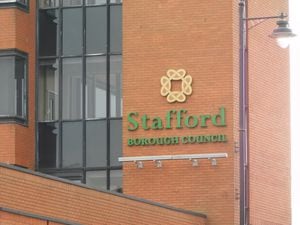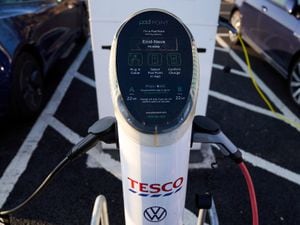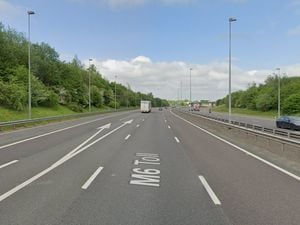Quiet dignity amid the Leveson media circus
The "media lock-in" for the Leveson Report's publication was a sign of things to come. Political Editor DANIEL WAINWRIGHT reports from the thick of it.
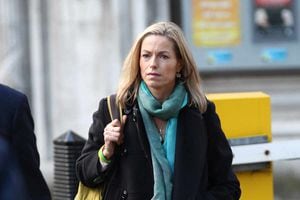

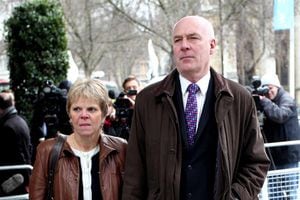
When the parents of murdered schoolgirl Milly Dowler arrived to hear the findings of the Leveson Inquiry, I almost did not notice them.
An ordinary looking couple – a tall man in a suit and his wife, whose head just reaches his shoulder – they could have been anyone.
And of course they are ordinary people, but thrust into the limelight. They are the people whose grief was so cruelly and disgracefully intruded upon as their missing daughter's voicemail was hacked by journalists looking for an exclusive story.
Dignified and quiet Bob Dowler held his wife's hand and gently led her past the throngs of cameras and into the Queen Elizabeth II Conference Centre in central London.
Asked if they wanted to say anything Mr Dowler declined with a polite "no, thank you".
Within minutes Kate McCann, mother of missing Madeleine, arrived and kept her head low as she found herself confronted by photographers.
It must happen an awful lot to people like the McCanns and the Dowlers now that they are recognised in the street and that flash bulbs and calls from photographers greet them wherever they go.
Some journalists have forgotten that these people whose lives and heartaches we report on are human beings and have never sought the attention that the rich and famous like Hugh Grant and his fellow campaigner Steve Coogan, aka Alan Partridge, courted in order to further their careers.
That's why we're all in this mess together. A few people broke the rules and managed to forget the basic human rights everyone was entitled to.
The sombre mood was nearly broken by the arrival of John Prescott.
The normally spiky and occasionally punchy former deputy prime minister is always good for a one-liner or a retort but he was having none of it.
He scuttled into the conference centre with not a word and barely a scowl for the assembled photographers and reporters, the future of whose careers he had come to see.
"Go on John, give us a wave", said one photographer. He didn't. "Happy days", sighed the Cockney snapper.
He knew, as we all did, that what was about to be revealed had consequences for us all.
For the media was reporting on the media (they pronounce it "mee-ja" down there). News about news. The Press had eaten itself.
Hugh Grant, who has campaigned for tighter regulation of the Press, was there to be one of the first to see the report of Lord Justice Leveson as was Max Mosley, the Formula One boss who sued the now defunct News Of The World after details of his bedroom antics were published along with a false allegation that they had a Nazi theme.
The witnesses and celebrities were followed by an odd assortment of people hanging around the entrance seeking some attention.
One was an anti-nuclear campaigner called Stuart who had a Staffordshire bull terrier, also called Stuart, with a sign on the dog's back claiming there was some form of cover-up of the disaster at the Fukushima nuclear power plant in Japan last year.
They marched up and down outside the entrance to the conference centre whenever anyone famous or well known came by, following them as the cameras started clicking.
There was a cheerful artist by the name of Kaya Mar, who had done a rather good satirical painting of some of the key players, like Lord Leveson, Tony Blair and Rupert Murdoch. He didn't have a point to make, he was just showing his work.
A group of protesters wearing giant masks of David Cameron and Lord Leveson stood outside. They seemed to have already made up their minds that the Prime Minister was not going to back statutory regulation because they were pretending to tear up the as-yet-unpublished report and drop pages into a pretend fire.
Once the witnesses to the Inquiry had entered the building it was the last we saw of them until Lord Leveson delivered his speech, although someone said he had spotted Lord Prescott coming out of the gents.
This separation of journalists from the witnesses brought to mind the idea that we were the defendants in the dock, waiting for the judge to pass sentence.
The Press were herded into a room with no tables, forcing reporters to run for a space by the window to use the ledges for their laptops, lest they get warm knees by keeping their computers on their laps (as the name suggests).
The aim was to give us time to prepare reports but far from facilitating coverage there was a certain air of obstruction and rather needless, overbearing control – something most reporters feared would be coming as a result of the Leveson Report, not from the first reading of it.
Banned from breathing a word of the report until 1.30pm, there was a brief outcry from one of the many men from the BBC (they appeared to be everywhere, presumably for radio, TV and online, can't they just share a bit?) that we would not be allowed to take copies of the report away.
At 2,000 pages a volume, my back was almost grateful.
Nor could we send emails containing our copy to our newsdesks.
That posed a problem for the reporters who wanted to head upstairs at 1.30pm and see Lord Leveson in the flesh as he made his speech.
Instead we had to do what everyone else who had not been granted access did and watch him on TV.
And woe betide the hapless hack who accidentally attempted to tweet any of this. Aside from the impossibility of trying to condense the proposed ways of controlling the British Press into just 140 characters, anyone doing so before the embargo was lifted would be frogmarched from the room. We all had to sign documents accepting that.
They made us fight for the precious few power points and when, at 11.45am, copies of the report were released we all ran for it like we were dashing for the last tin of beans in the shop before a hurricane.
This officious and bureaucratic control of those who hold power to account could well be the way forward under the regulatory body backed by legislation proposed yesterday.
Lord Leveson said he wanted the Press to continue to be "unruly".
But the assembled men and women of the Press were nothing of the sort once the report was in their hands.
As they settled back down to read the report almost the room fell almost silent as though they were taking the final exam at school, apart from a general hum of laptops and the tapping of keys.
We turned straight to the section marked The Future: Press Regulation.
Fortunately there was an "executive summary" but at 46 pages, the executive summary needed a summary of recommendations of its own at the back.
The reporters did their jobs.
They digested the findings and they reported them calmly, with professionalism and in good humour.
There were no groans, no moans or howls of protest at what will be tighter controls over our industry during difficult economic times… apart from when we couldn't find a spare plug socket to re-charge an iPhone.

